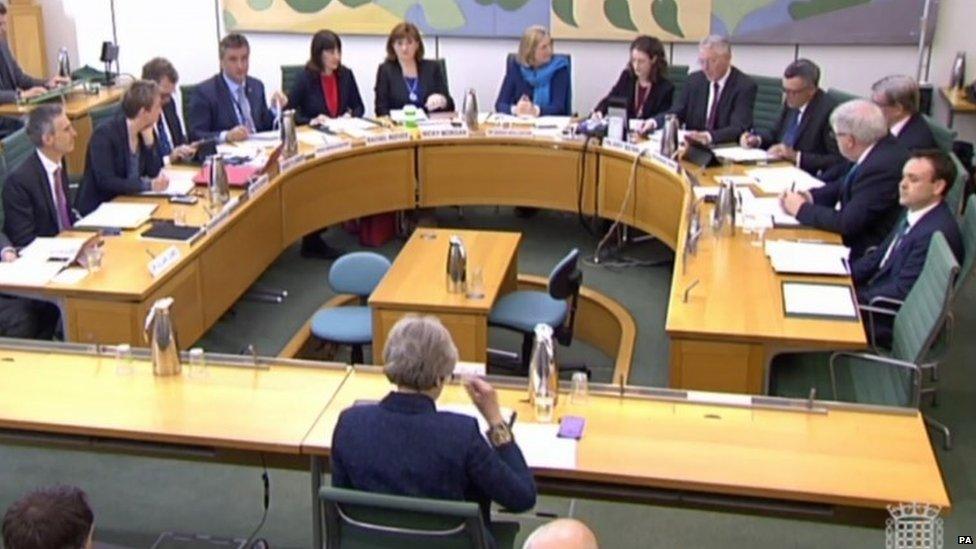Brexit: May hopes UK will leave 'well before' 31 October deadline
- Published
- comments
Theresa May: "I have voted consistently in Parliament for us to leave the European Union."
Theresa May has said she hopes the UK will leave the EU well before the new 31 October Brexit deadline.
She told MPs there was no reason the UK could not leave in a matter of weeks once MPs backed an agreement, which they have so far rejected three times.
She signalled she hoped to get Labour backing for any new customs proposal before putting it to Parliament again.
She said their aims were "very similar" and "sometimes people use different terms to mean the same thing".
Labour wants the PM to sign up to the idea of a customs union with the EU, something she has adamantly opposed up to now, and some have suggested she is moving in their direction.
Most Conservative MPs have said they would not support the move, saying it would mean the UK would not have an independent trade policy.
Mrs May chose to open talks with Jeremy Corbyn after Parliament rejected the withdrawal agreement she has negotiated with the EU a third time late last month.
After this defeat, the EU extended the deadline for the UK's departure - originally set for 29 March - until 31 October.
Mrs May told MPs she hoped the extension would be "terminable" well before this date and the UK would find itself outside the EU "as soon as possible".
Appearing before the Liaison Committee of senior MPs, she said the choice facing Parliament was the same as when it last rejected her agreement.
MPs could opt to agree a deal and leave in an orderly fashion, to leave without a deal, hold another referendum, or to stay in the EU by revoking Article 50 - only the first of which she found "acceptable".
She said she was "convinced" that reaching out to Labour to try and build a majority for any deal was the right thing to do.
If no agreement was reached, she said the government would stand by its commitment to give MPs the chance to vote on a series of options, with ministers abiding by the outcome.
'Paralysed'
Pressed by Labour MP Hilary Benn on whether this would include a customs union, Mrs May pointed out that Parliament had already rejected the idea on more than one occasion.
But she added: "Various terms are used in relation to customs. Sometimes people use different terms to mean the same thing, sometimes it is meaning different approaches.
"But what I think is important when we comes to that process is that anything we put before the House, I hope would would be able to get agreement with the opposition so there is a process that everyone can stand behind."

Asked whether she was prepared to soften her opposition to a customs union, she said both sides needs to "identify" what they were trying to achieve.
On the issue of post-Brexit trade, she said the government and Labour had "very similar" objectives, which were to protect jobs and to ensure as frictionless as trade as possible.
But Labour MP Yvette Cooper said MPs felt "they were going around in circles and paralysed like nothing is changing".
Conservative MP Bernard Jenkin, who voted against the deal three times, said the PM had been under no obligation to agree the terms of the extension offered by the EU.
In response, she told him that if all Conservatives had voted to leave the EU the UK would no longer be a member.
While the UK's policy was to leave with a deal, she insisted this was "not entirely in the hands of the UK government" as it would be up to the EU to decide on any further extension.